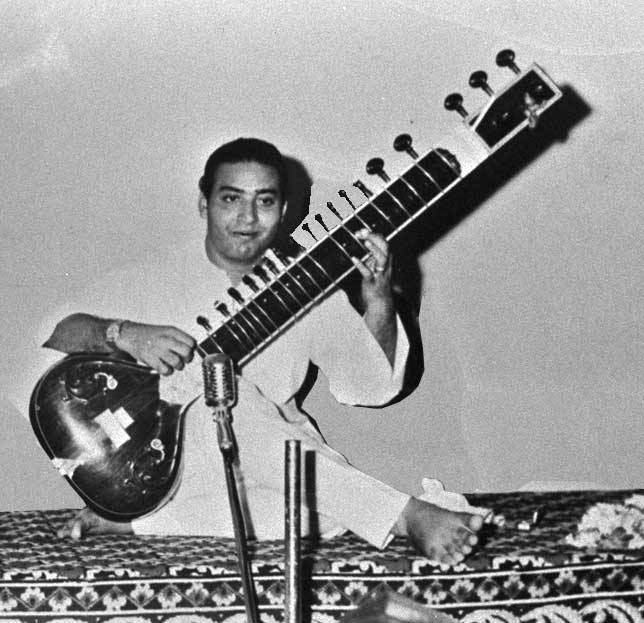1935-2018

The name of Imrat Khan was prominent in the field of Indian music. He was the younger brother of the late Vilayat Khan, but was an important artist in his own right.
He was accomplished in both sitar as well as the surbahar. The surbahar is very much like a bass sitar. It is of a similar construction, but is about an octave lower.
Ustad Imrat Khan had an impeccable pedigree. He was born in Calcutta in 1935 into an illustrious musical family. His father was the famous Inayat Khan, who in turn was the son of Ustad Imdad Khan.
His musical training was extremely rich. His initial training was under his mother, Bashiran Begum, and from her father, the great Ustad Bundeh Hassan Khan, who was a great vocalist. He studied sitar under his older brother Vilayat Khan and surbahar under his paternal uncle Ustad Waheed Khan.
Imrat Khan was a master of the “Gayaki” style of playing. This style is strongly influenced by India’s vocal tradition. It uses ornaments that one does not normally find on stringed instruments. This influence is undoubtedly due to the training under vocalists such as Ustad Bundeh Hassan Khan.
Imrat Khan received many awards and distinctions. He was a visiting professor at Washington University in St. Louis. He was also a member of the Sangeet Natak Akademi. Furthermore, he performed in numerous international festivals. He also provided music for numerous films from such noted directors as Satyajit Ray and James Ivory.
Imrat Khan was father to a number of notable Indian musicians. Nishat Khan is a noted sitarist, Irshad Khan is versed in both the sitar as well as the surbahar. Wajhad Khan is an accomplished sarod player, while Shafaatullah is a noted exponent of the tabla.
Imrat Khan suffered a stroke and died in St. Lous, Missouri, USA. He was 83 and had been ill for some time.
